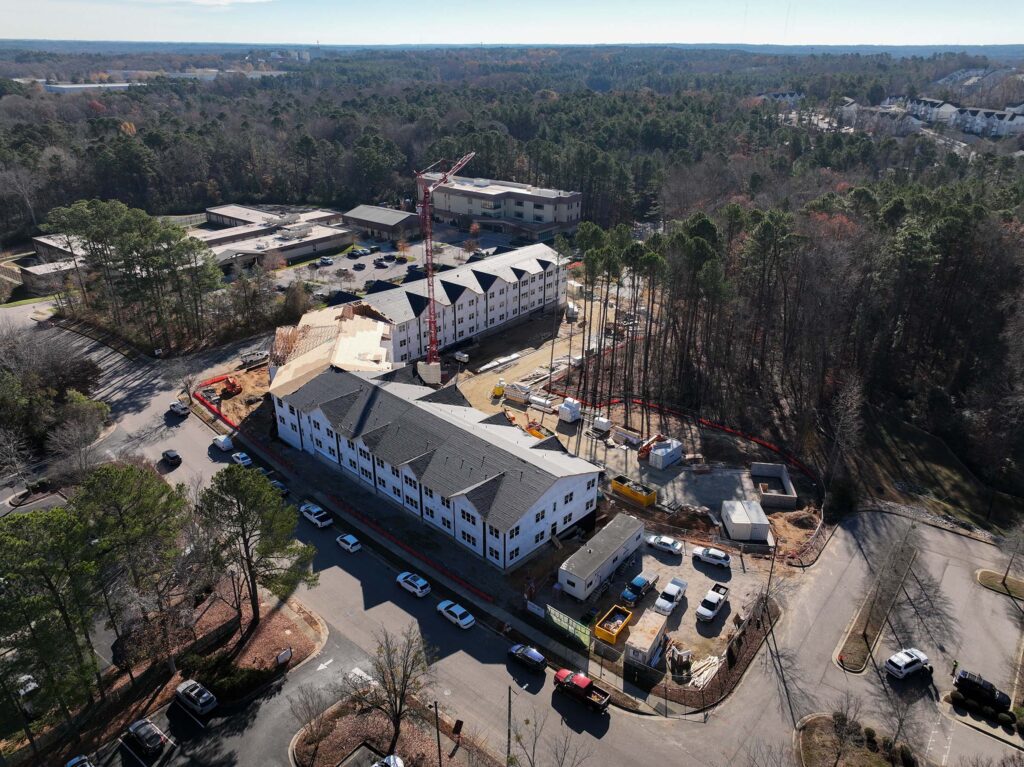Affordable Housing in Charlotte and Raleigh | Creative Solutions to a Growing Crisis
Charlotte and Raleigh are both facing an affordable housing crisis, and the shortage has grown too big to ignore. Across North Carolina, there are only 41 affordable rentals for every 100 extremely low-income households, creating a statewide shortage of nearly 200,000 homes. With slowed construction and rapid in-migration, the need for affordable housing in Charlotte and Raleigh is now urgent.
Charlotte: Affordable Housing Conversions and Mixed-Income Communities

Charlotte is embracing creative strategies to address the need for affordable housing:
Motel Conversions: Several Sugar Creek motels are being transformed into “Charlie Apartments,” with units starting around $1,070 per month.
Habitat’s Carya Pond: This planned 83-townhome community will reserve nearly half the units as affordable housing.
Residences at Cedar Creek: A 200-unit development designed for households earning 30–60% of area median income (AMI).
City and Nonprofit Collaboration: Partnerships with DreamKey Partners and Housing Charlotte are fueling down-payment assistance, education, and new housing development.
These efforts show how Charlotte is expanding affordable housing through both conversions and mixed-income projects.
Raleigh: Affordable Housing Through Supportive Housing and Policy Shifts

Raleigh is also leading with policies and programs that address housing affordability:
King’s Ridge Apartments: 100 permanent housing units for individuals exiting homelessness, with access to supportive services.
Zoning Reform: City leaders are exploring co-living and boarding house models to create more affordable rental options.
Broader Efforts: Local grants and partnerships are expanding rental opportunities for households earning below 80% of AMI.
By combining zoning reform with supportive housing, Raleigh is tackling the affordable housing shortage head-on.
Key Takeaways on Affordable Housing in Charlotte and Raleigh
Charlotte is focusing on motel conversions, nonprofit partnerships, and mixed-income projects.
Raleigh is investing in zoning reform and supportive housing for vulnerable populations.
Both cities are showing that affordable housing in Charlotte and Raleigh can be addressed with bold, innovative approaches. These efforts may guide solutions across North Carolina.
Looking ahead, expect more creative strategies—such as Charlotte’s motel-to-apartment conversions and Raleigh’s co-living initiatives—to shape the housing market. While challenges remain, momentum for accessible, affordable housing continues to grow.




